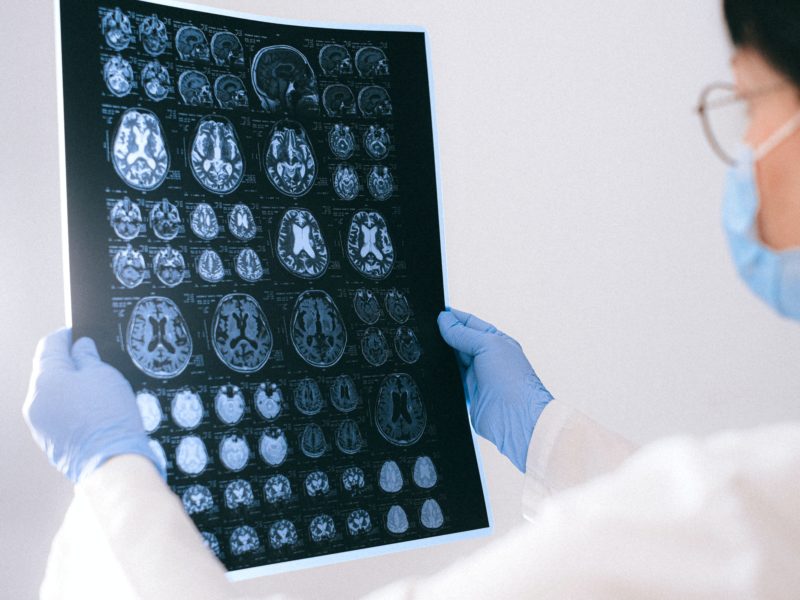As part of our American Heart Month series, this week, we examine work-related strokes: what they are, what you can do to prevent them, and what actions to take if you have suffered from this life-changing injury.
What is a Stroke?
Strokes, a type of cardiovascular disease, afflict thousands of Americans annually.
According to the CDC, “Stroke is a leading cause of death in the United States and is a major cause of serious disability for adults.” About 795,000 individuals in the United States will suffer from a stroke each year.
Strokes impact thousands of Americans each year, but still, this medical emergency remains mysterious to many.
Put simply, stroke occurs when parts of the brain become damaged or die. There are three types of stroke: ischemic strokes, hemorrhagic strokes, and transient ischemic attacks.
Ischemic strokes occur “when blood clots or other particles block the blood vessels to the brain.” For example, plaque, a type of fatty deposit, can cause blockages by building up in the blood vessels.
Hemorrhagic strokes occur “when a blood vessel bursts in the brain.” In this case, blood will build up and damage surrounding brain tissue.
Transient ischemic attacks (TIA), better known as “mini-strokes,” occur when blood flow to the brain is blocked for a short time. For instance, no more than 5 minutes. Individuals should not take mini-strokes lightly. First, when symptoms appear, there is no way to differentiate between a TIA and another major type of stroke. Second, TIA can be a wake-up call, explains the CDC, “More than a third of people who have a TIA and don’t get treatment have a major stroke within 1 year. As many as 10% to 15% of people will have a major stroke within 3 months of a TIA.”
Because our brains control our speech and movements, damage or death of brain cells can cause the infamous symptoms associated with strokes. Such symptoms include drooping face and slurred speech.
If strokes occur when brain cells are damaged or die, what does any of this have to do with heart health?
Strokes & Cardiovascular Health
To work correctly, the brain needs oxygen. In fact, our brains use 20% of the oxygen we breathe. Oxygen-rich blood is carried away from the heart to the brain via arteries.
Thus, it is no surprise that heart disease can increase the risk of stroke.
Conditions such as coronary artery disease, heart valve defects, atrial fibrillation, and enlarged heart chambers can all lead to stroke if not adequately monitored.
Additional Risk Factors
In addition to heart disease, there are a variety of other conditions which may contribute to strokes.
Conditions such as high blood pressure, high cholesterol, diabetes, and sickle cell disease can increase the chances of experiencing a stroke.
Further, many behavioral risk factors exist as well. Strokes can be brought on by poor diet, lack of physical activity, obesity, alcohol abuse, and tobacco use.
Causes of Work-Related Strokes
As with any workers’ compensation claim, a crucial element of receiving benefits for a stroke will be proving it was work-related.
When it comes to work-related strokes, often, stress will be the catalyst.
Whether due to poor management, demanding tasks, or long hours, the workplace can be a source of extreme mental and physical pressure. Unfortunately, this can lead to serious health consequences.
Stress can contribute to the risk of stroke in multiple ways. To illustrate, it can increase one’s risk of developing heart disease and high blood pressure. As discussed previously, such conditions are significant stroke risk factors.
Additionally, stressful working conditions can also change an individual’s lifestyle. An employee under a large amount of pressure may take up habits such as poor eating, smoking, or alcohol abuse.
Preventing Strokes
Strokes can have a life-changing impact. They can cause brain damage, long-term disability, and death.
To avoid stroke, individuals should follow a healthy diet, take time for physical activity, quit smoking, and limit alcohol consumption.
It may not always be easy to make or maintain these changes with busy lifestyles. But, fortunately, employers can help.
How Employers Can Help Employees Avoid Work-Related Strokes
Employers can help their employees avoid stroke in several ways.
- Develop a supportive working environment – Employers should create a healthy and safe working environment and seek to eliminate unnecessary pressures even in industries that tend to be more stressful than others.
- Provide health insurance – By providing insurance coverage at low or no cost, employers can help employees better access prescriptions, blood pressure monitors, and other medical services they need to decrease the risk of stroke.
- Promote physical activity – Employers can consider organizing company activities such as team sports, hikes, and more to foster community and healthy living at the same time.
- Create smoke-free spaces – If possible, employers should create smoke-free spaces to help nonsmoking employees avoid the harmful impact of second-hand smoke and encourage smoking employees to quit.
- Offer healthy food and beverages – If employers provide drinks, snacks, or meals to their employees, they should be selective about the options they choose and ensure healthy choices available.
Have You Experienced a Work-Related Stroke? Keches Law Group Can Help.
At Keches Law Group, we understand the significant impact a stroke can have on you and your family. Recovering from and paying for the medical bills associated with a stroke is no simple feat.
Have you experienced a work-related stroke? You may be eligible for workers’ compensation.
Contact us today for a free consultation.





